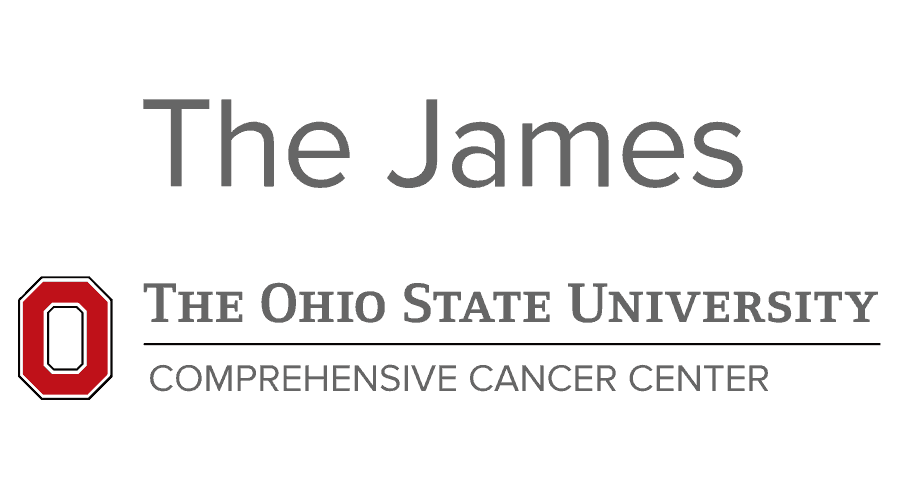Drug Discovery Shared Resource
Please remember to cite the Shared Resources!
Research reported in this publication was supported by The Ohio State University Comprehensive Cancer Center and the National Institutes of Health under grant number P30 CA016058.
We thank the XX Shared Resource at The Ohio State University Comprehensive Cancer Center, Columbus, OH for (XX)
About Us (back to top)
The Drug Discovery Shared Resource (DDSR) integrates the expertise of multiple disciplines, including synthetic and process chemistry, instrumental analysis, chemical biology and molecular pharmacology, to provide medicinal chemistry and high-throughput screening support to investigators at the OSUCCC – James as well as to other academic and commercial institutions.
The goal of the DDSR is to provide investigators with multiple different aspects of medicinal chemistry and small molecule screening services, including chemistry consultation, design and synthesis of new molecules of biological interest, sample purity analyses and custom syntheses of known agents. We offer high-throughput screening and high-content screening of small molecule libraries against a wide range of biological assays and targets. In collaboration with other OSUCCC – James Shared Resources, the DDSR aims to translate basic science findings from investigators into small-molecule agents for testing individual hypotheses, adding an important dimension in translating basic science to the clinic.
335 & 345 Parks Hall
496 W. 12th Avenue
Columbus, OH 43210
Meet the Team(back to top)


Meng Wu, PhD, High Throughput Screening Technical Director, Dr. Wu comes to The Ohio State University after previously serving as director of the University of Iowa High-Throughput Screening (UIHTS) Core. His research expertise focuses on biochemical and cellular in vitro assay adaption and development for plate-based screening, high-throughput screening, high-content screening and systems cancer biology/pharmacology for early drug discovery, target identification and molecular probe development. His research interests are on developing plate-based high-throughput/content technologies, especially for membrane targets such as ion channels, GPCRs and transporters.
Sandip Vibhute, PhD, Medicinal Chemistry Technical Director, is a synthetic and medicinal chemist with more than 16 years of experience working as a senior member of teams consisting of computational chemists, biochemists, and molecular biologists in both academic and industrial settings. Prior to joining the DDSR, Dr. Vibhute has been successful at multiple academic institutions and contract research organizations, bringing with him a breadth of knowledge from a variety of drug discovery projects.
Tyler Wilson, PhD, Medicinal Chemist, is a synthetic medicinal chemist, experienced in academic drug discovery. Dr. Wilson earned his PhD in Pharmaceutical Sciences from the Ohio State University’s College of Pharmacy in 2019. During his doctoral work he collaborated with multiple academic groups to develop and test anticancer natural product analogs and small-molecule HIV Integrase inhibitors, gaining critical knowledge of the drug discovery process.
Zhihong Lin, PhD, Research Specialist
Domu Sunil, Research Scientist
Jogendra Pawar, PhD, Postdoctoral Fellow
Vick Sadowski, Research Associate
Ella Murphy, Undergraduate Assistant
Available Services (back to top)
The Medicinal Chemistry Core (DDSR-MC) offers consultation and synthetic medicinal chemistry. Staff of DDSR-MC work with investigators to design new derivatives of lead structures with the goal of improving biological properties, such as potency, efficacy and bioavailability. We scale-up agents to support more in-depth studies, such as in vivo efficacy and pharmacokinetic/pharmacodynamics studies. If mechanistic probes are needed, the DDSR-MC will collaborate with investigators to design and synthesize tool molecules for probing biological pathways. Our services include:
- Structure Activity Relationship (SAR) Analysis and Lead Optimization: Chemists of MCSR-SC will analyze existing molecules and data to develop SAR, and then use this information to design and synthesize new molecules to improve potency, efficacy, and bioavailability.
- Custom synthesis of agents not available from commercial sources: Chemists of MCSR-SC consult with investigators to determine the potential to synthesize small molecules of interest and then carry out the synthesis of these target compounds.
- Commercially available small molecules: Staff of MCSR-Synthesis consult with investigators regarding the availability, stability, and purity of chemical agents available from vendors. We conduct nuclear magnetic resonance spectroscopy, mass spectrometry and other analyses to verify the identity and/or purity of chemical agents.
- New service - Synthesis of Targeted Protein Degraders. The MCSR will consult with investigators who are interested in developing a tool degrader for a particular biological target of interest. If deemed feasible, the MCSR will design and synthesize putative degraders using current adaptable degrader technologies.
Click here for full list of services and fees
The High-Throughput Screening Core (DDSR-HTSC) of the DDSR offers access to libraries of diverse small molecules, high-content screening using confocal imaging and luminescence-based high-throughput screening of these libraries against biological pathways and proteins. Our services include:
- Assay adaption and development: Assays provided by investigators can be adapted to HTS on multi-well plates or developed from existing methods as supported by statistical validation.
- High-throughput screening: Pilot screening, primary screening and secondary screening against target proteins with a wide variety of readouts.
- High-content screening: Confocal microscopy-based primary and secondary screening, predominantly against cellular phenotypes.
- Hit validation: Verification of compound activity using replicated dose-response studies.
- Collections of plated compounds: Copies of libraries, collections of cherry-picked compounds and compound plates arrayed for dose-response studies.
- Data analysis: Quantitative assessments of HTS data and high-content imaging data
- Grant writing assistance: Letters of support, descriptions of facilities and equipment, and consultation on generation of preliminary data for grant applications.
- Supporting services: Facilitating access to experts in medicinal chemistry (e.g., hit-to-lead and lead optimization studies), drug development (PK/PD) and translational research for preclinical studies and planning for clinical trials.
- Project management: Electronic notebooks and data management strategies.
More information about capabilities and services of the DDSR-HTSC can be found at https://u.osu.edu/highthroughputscreeningcore.
Please remember to cite the Shared Resources!
Research reported in this publication was supported by The Ohio State University Comprehensive Cancer Center and the National Institutes of Health under grant number P30 CA016058.
We thank the XX Shared Resource at The Ohio State University Comprehensive Cancer Center, Columbus, OH for (XX)
